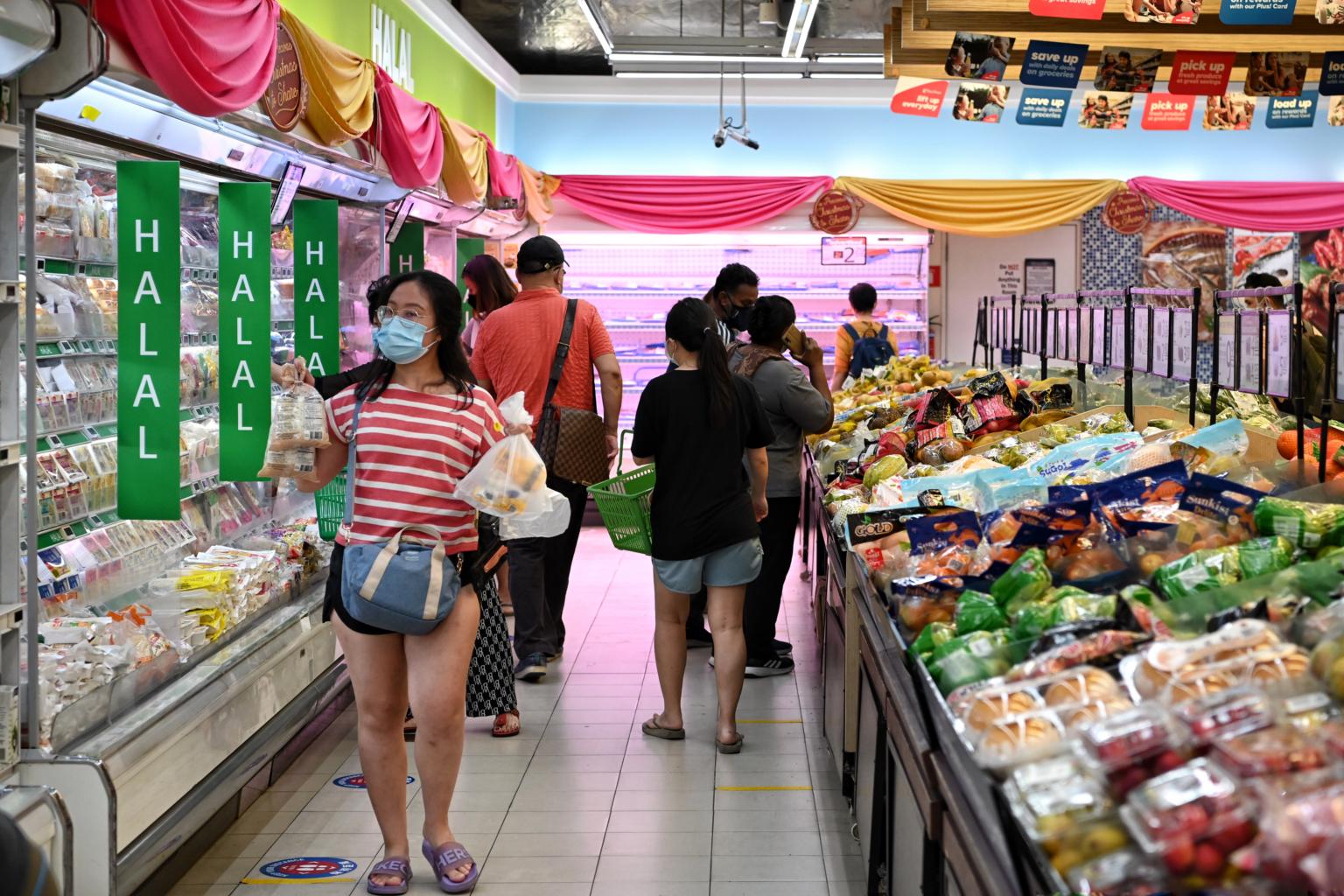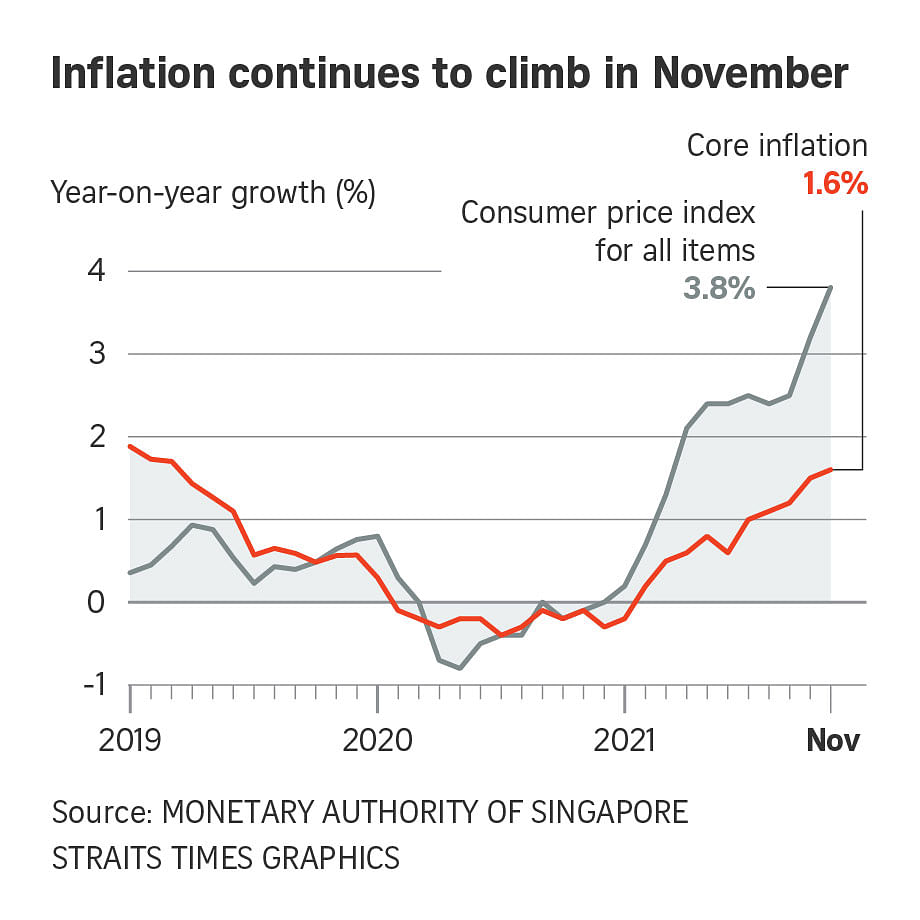Singapore inflation continues to climb in November, breaking October record
Sign up now: Get ST's newsletters delivered to your inbox

Core inflation climbed to 1.6 per cent last month from 1.5 per cent in October.
ST PHOTO: KUA CHEE SIONG
Follow topic:
SINGAPORE - Prices in Singapore are rising more sharply than expected, with inflation at its highest in several years. Both bad news and good contributed to this.
The good news is that there is greater domestic demand for goods and services as the economy recovers. On the flip side, prices are also being driven up by rising import costs amid global transportation bottlenecks.
The prices are starting to rise after a spell that saw them fall amid plunging demand during the pandemic.
The Monetary Authority of Singapore (MAS) and Ministry of Trade and Industry (MTI) said on Thursday that wages have increased and are expected to continue rising at a steady pace as slack in the labour market dissipates. This adds to both costs and prices.
The Republic’s overall and core inflation continued to climb in November, after both benchmarks hit their highest in several years the previous month.
Core inflation, which excludes rents and private road transport costs, climbed to 1.6 per cent last month from 1.5 per cent in October, amid rising services costs and is expected to rise further in the months ahead.
This is the indicator that better captures the underlying trend in consumer prices and the one that MAS monitors most closely.
Analysts polled by Bloomberg had expected core inflation to remain unchanged at 1.5 per cent. The last time the core inflation rate was higher was in March 2019, when it hit 1.7 per cent.
Overall inflation edged up to 3.8 per cent in November, from October’s more than eight-year high of 3.2 per cent. It outdid the 3.4 per cent forecast by analysts polled by Bloomberg.
MAS and MTI raised their overall inflation forecast for this year to 2.3 per cent, up from around 2 per cent previously, given the sharp rise in private transport costs in recent months due to higher certificate of entitlement (COE) premiums.
They kept their overall inflation estimate for 2022 unchanged at 1.5 per cent to 2.5 per cent.
UOB economist Barnabas Gan said this means the high inflation rate is likely to be temporary.
Headline and core inflation have both averaged 1.4 per cent over the past 10 years, he noted.
Private transport inflation rose to 17.9 per cent in November, from 14.3 per cent the previous month, on the back of a larger increase in car prices.
Electricity and gas costs also saw a steeper increase - of 10 per cent in November, compared with October’s 7.8 per cent - mainly due to a decline in the number of households on standard price plans for electricity as some retailers exited the market.
Services inflation edged up to 1.9 per cent, from 1.6 per cent in October, due to a faster pace of increase in airfares as border restrictions eased, and a smaller decline in telecommunication services costs.
Home rents rose, leading to accommodation inflation of 2.7 per cent, compared with October’s 2.5 per cent. Food inflation, likewise, climbed to 1.9 per cent in November, from 1.7 per cent the previous month.

However, the cost of retail and other goods fell more sharply - at 0.9 per cent in November, compared with October’s 0.4 per cent decline - due to a larger fall in the price of clothing and footwear.
Core inflation is officially expected to average 0.9 per cent for 2021 as a whole, and increase further to 1 per cent to 2 per cent next year.
MAS and MTI said: “Amid construction delays, accommodation inflation should remain firm and continue to support (overall) inflation in 2022. Meanwhile, private transport inflation is likely to moderate next year on the back of a slower pace of increase in COE premiums and petrol costs.”

